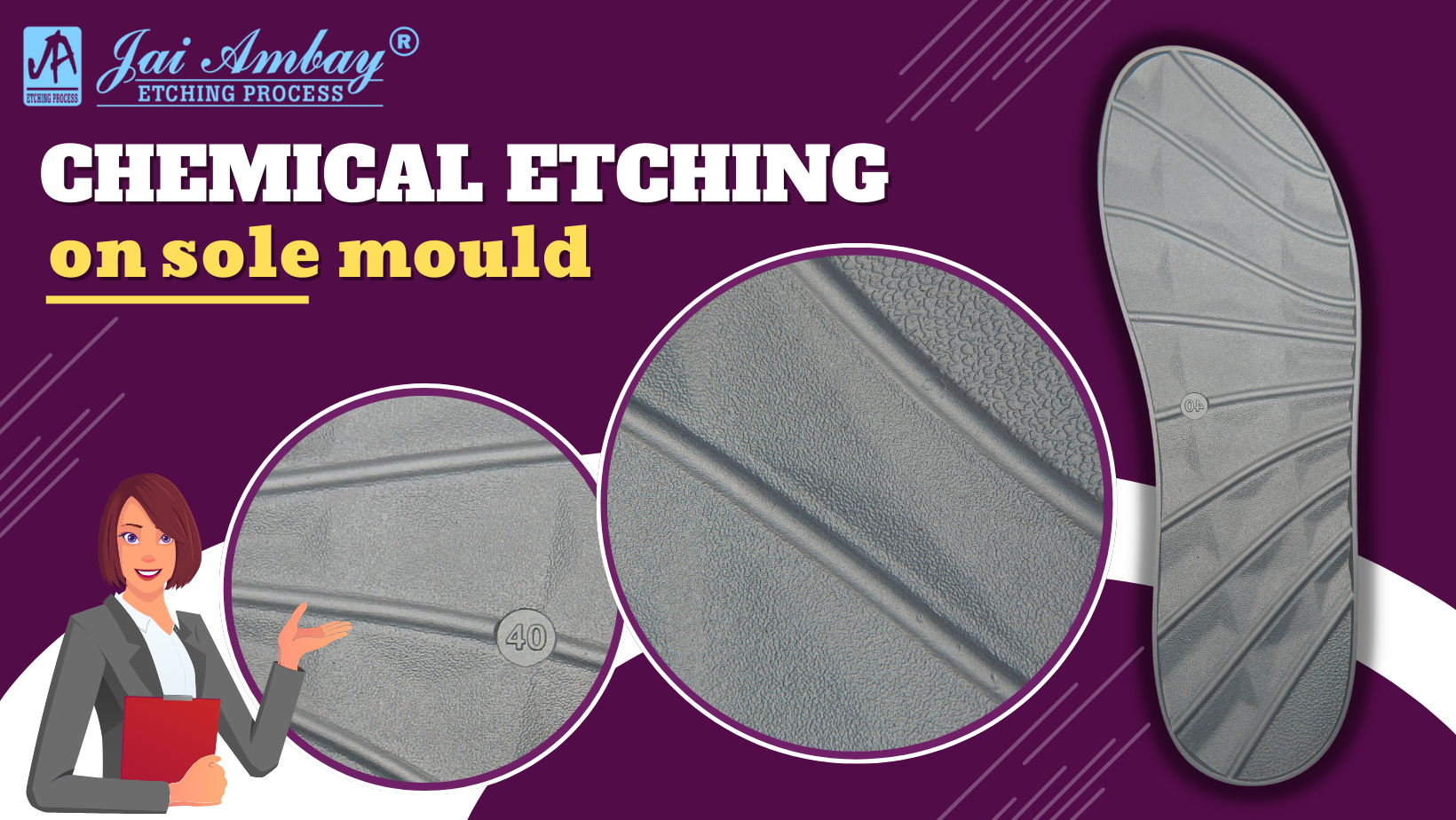Utilizing Chemical Etching for Sole Moulds
Chemical etching is a fascinating process that has many applications in various industries. One of its unique applications is the manufacturing of sole moulds for shoes. The purpose of this blog post is to explore deeper into the complexity of this process, how it is conducted, and why it is an essential technology in the footwear industry.
What is Chemical Etching?
Chemical etching, also known as chemical milling, is a method of shaping and modifying metal surfaces using chemicals. The process involves coating a protective layer on a metal surface, then exposing selected areas to a chemical solution that strips away the unprotected parts, leaving a desired design or pattern. The precision and versatility of chemical etching make it a preferred method of creating intricate designs on metal surfaces.
In the footwear industry, chemical etching is used to create sole moulds that are highly durable and can withstand the wear and tear of daily use.
The process begins with the creation of a design for the sole mould. This design is then transferred onto a metal plate or sheet. The metal plate is then coated with a layer of photoresist, which is a light sensitive material that hardens when exposed to light. The metal plate is then exposed to ultraviolet light through a mask containing the design of the sole mold. Areas of the photoresist that are exposed to light harden, while unexposed areas remain soft.
The metal plate is then immersed in a chemical solution that selectively dissolves unhardened areas of the photoresist. This exposes the metal surface that is not covered by the hardened photoresist. The exposed metal is then removed using a chemical solution that dissolves the metal. The depth of the etch is controlled by the concentration and duration of the etch process.
The resulting mould is cleaned and polished to remove any remaining photoresist and smooth any rough edges. The mold is then ready to be used in the shoe manufacturing process. Chemical etching is an important technique in the footwear industry as it allows the creation of highly accurate and durable sole molds that can withstand the demands of daily use.
Chemical Etching in Sole Moulds
The footwear industry also uses the chemical etching process in making sole molds. These molds are used for manufacturing the soles of different types of shoes like sneakers, formal shoes, boots and others. The precision provided by chemical etching ensures that the sole molds are of high quality and provide the necessary grip and comfort to the shoe.
Why Choose Chemical Etching for Sole Moulds?
Chemical etching offers several advantages over other methods of making soul molds. The process is cost effective as it requires less raw material and reduces the need for extensive machinery. It is also a faster process, allowing faster production times. However, the biggest benefit is the accuracy it provides. Chemical etching can create intricate and complex designs with the ease and precision that are often required in soul moulds.
Final Thoughts
The use of chemical etching in making sole molds is a testament to the versatility and effectiveness of this process. This not only provides an economical solution to manufacturers but also ensures that the end products are of high quality. So, the next time you wear your favourite shoes, remember that there’s a good chance that chemical etching played a role in creating them.
Contact Us
If you’re interested in learning more about chemical etching or require our services, do not hesitate to get in touch with us. You can visit our website at jaiambayetchingprocess.com
or call us directly at +91 9810988206
,

